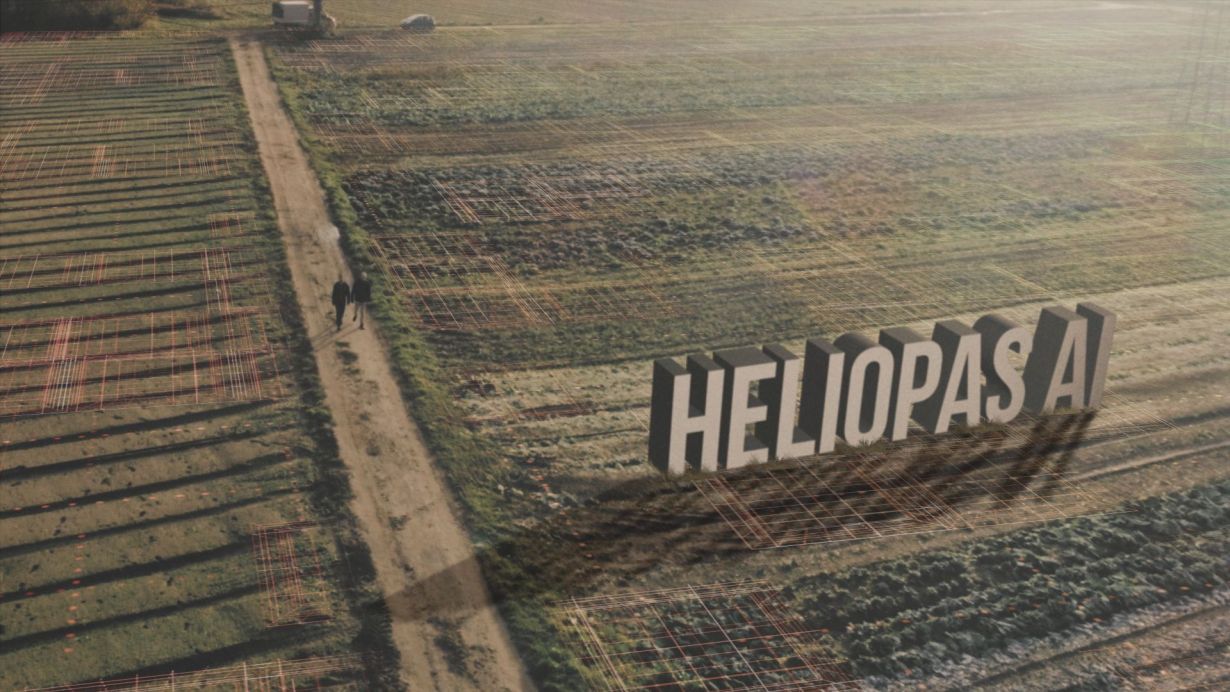Drought and weather fluctuations threaten agriculture in Germany often in spring already. An increasing number of farmers is forced to irrigate fields artificially. Water resources, however, are limited. Precise information on the state of plants and soils helps farmers take effective measures against damage caused by drought and to enhance irrigation efficiency. The startup heliopas.ai of Karlsruhe Institute of Technology (KIT) analyzes satellite images using artificial intelligence (AI) and transmits precise data on the situation on the field to the farmers’ smartphones. Farmers only have to install the “WaterFox” smartphone app and to create their fields in it.
Since the beginning of the current vegetation period, precipitation in Germany has been far too low: With nearly 17 l per square meter, April 2020 reached not even a third of its target value of 58 l, the German Weather Service (DWD) reports. Precipitation was lower in 1881 and 2007 only. The drought monitor of the Helmholtz Centre for Environmental Research (UFZ) reveals large regions of extreme and partly even extraordinary drought. Due to the dry years of 2018 and 2019, the soil has already dried out down to a depth of 1.8 m.
“Unfortunately, this is no regional problem,” says Ingmar Wolff, founder of heliopas.ai. Due to global warming, an increase in extreme weather conditions has to be expected. “Damage in agriculture due to drought, but also moisture-induced diseases cause multi-billion losses every year and threaten food security of billions of people.” Together with his colleague Benno Avino, Wolff wants to help farmers cope with this new situation. “We use artificial intelligence to understand very precisely what happens on the field, how the plants are doing, and where potential problems occur. These findings are then used to derive recommendations for the farmer that are displayed on the latter’s smartphone for him to optimally react,” Wolff says.
An App Helps Farmers Save Water
To use the service of heliopas.ai, farmers do not have to install any sensors or other devices on their fields. The new technology is based on satellite images, precipitation volumes, and other data that are collected on a daily basis. Then, artificial intelligence is used to identify relevant parameters, such as soil moisture, but also the occurrence of plant diseases. The “WaterFox” smartphone app ensures user-friendly access to the data. It is available now. “Thanks to the simple and clear recommendations, the farmer only needs to irrigate those areas that actually require irrigation,” Wolff says. “This helps him save water and reduces the expenditure for planning and coordinating seasonal workers.”
WaterFox is easy to use: The user creates his fields on the map in the app and can start immediately. Clients are currently invited to test the product cost-free for one month. Then, use will be charged depending on the area. The service is also attractive for small farms. In future, irrigation recommendations will be complemented by recommendations relating to precise fertilization and well-balanced crop protection. This will help farmers increase their yields, produce healthier food, and protect the environment.

More information: https://waterfox.heliopas.ai/ (in German)
Interactive Video Presents the Founders
The heliopas.ai startup and its founders Ingmar Wolff and Benno Avino are presented in the second interactive video of the series “Sachen machen mit KI” (things to do with AI).
To the video: http://www.sek.kit.edu/video/heliopasai/ (in German)
When playing the video in the interactive video player, viewers can change the image and sound tracks and, hence, obtain information from various perspectives. In a few steps, the interactive videos may also be integrated in own reports using the embed code.
Being “The Research University in the Helmholtz Association”, KIT creates and imparts knowledge for the society and the environment. It is the objective to make significant contributions to the global challenges in the fields of energy, mobility, and information. For this, about 10,000 employees cooperate in a broad range of disciplines in natural sciences, engineering sciences, economics, and the humanities and social sciences. KIT prepares its 22,800 students for responsible tasks in society, industry, and science by offering research-based study programs. Innovation efforts at KIT build a bridge between important scientific findings and their application for the benefit of society, economic prosperity, and the preservation of our natural basis of life. KIT is one of the German universities of excellence.

